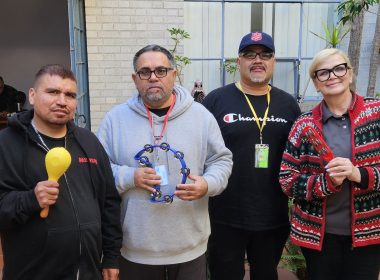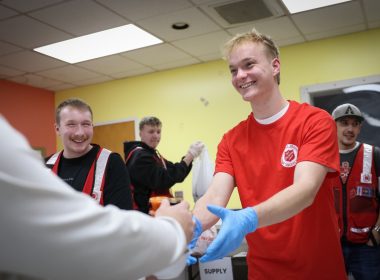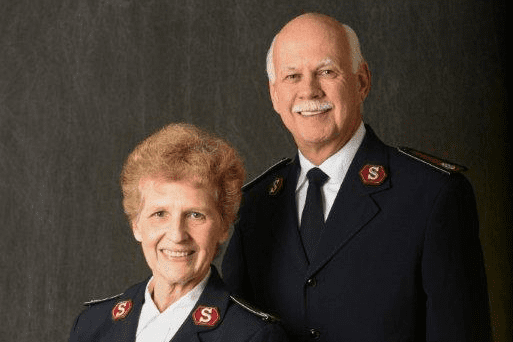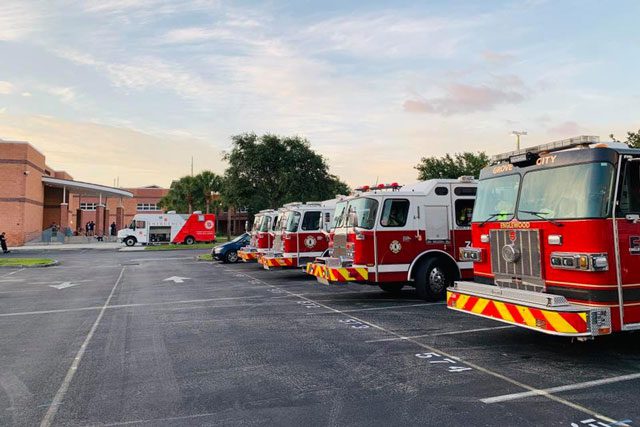National Social Service Conference explores Christian response to human need.
by Sue Warner and Christin Davis –
“Winds of Change” blew through the windy city of Chicago as nearly 400 officers and employees—committed and steadfast workers serving on the front lines of Salvation Army ministry—gathered at the National Social Services Conference to celebrate, promote, shape and advance The Salvation Army’s expression of practical Christian response to human need.
“You provide the best of professional social concern and almost daily have the opportunity to share the best social medicine that can be offered—the good news of the gospel of Jesus Christ,” said Metropolitan Divisional Leader Lt. Colonel David Grindle as he greeted delegates at Saturday night’s welcome banquet. “You have helped to create an Army with a track record in the field of social service that is widely acknowledged to be among the most effective in the country.”
Conference speakers and special guests included: Commissioner Christine MacMillan, international director for social justice; Dr. Brenda Salter McNeil, president and founder of Salter McNeil and associates; Central Territorial Commander Commissioner Barry Swanson; National Social Services Secretary Major Betty Israel, and National Secretary for Program Lt. Colonel Mark Israel.
Western Territory Social Services Director Major Allie Niles also participated.
Delegates attended workshops that provided opportunities for professional growth and networking, and addressed issues of: addictions; social justice/trafficking; children and youth; emergency disaster services; staff development and training; program development; special populations; housing and homelessness; direct care; and pastoral care.
An international missing persons/family tracing educational seminar was held in conjunction with the conference.
A grand welcome
After a warm welcome by Central Territory Chief Secretary Colonel Paul Seiler, delegates were treated to the vibrant musical mastery of the Chicago Staff Band, under the leadership of Territorial Bandmaster William Himes, O.F., at Saturday night’s welcome banquet, and to engaging skits from the Bill Booth Theater Company.
Twenty youth from the Army’s Metropolitan Youth Prep Band delighted the crowd with a musical medley; the young musicians are some of the 1,000 students who participate in neighborhood music programs run by The Salvation Army in conjunction with public schools—programs that have made a significant change in scores of lives. Two young musicians told of the impact The Salvation Army has made on them: “Now, we carry the light of hope to the darkness around us,” one said.
A worship service on Sunday morning anchored the conference spiritually. In his message, Lt. Colonel Mark Israel challenged delegates to remember God’s faithfulness, and to commit to being a faithful people. “We are not called to success but to faithfulness,” he said. “It’s absolutely essential that we come back to the truth that God is faithful.”
Program awards
A highlight of the conference was the announcement of the national social services award, which was given to the Southern Territory’s F.A.I.T.H. program. The Western Territory’s nominee was the Hawaiian and Pacific Islands Division Family Intervention Services, which has offered continuous services on the big island of Hawai’i since 1970, and provides prevention, residential, outreach and transitional living services to children and adolescents.
Jerry Morris, Golden State division, administrator for social programs at the Modesto, Calif., corps, received the West’s award for excellence in social work.
“If it weren’t for The Salvation Army and its philosophy, I wouldn’t be motivated to work as I do,” Morris said. “There are so many who do the same thing day in and day out, who have the same desire and commitment and are deserving of this awardthis is really for them also.”
Focus on social justice
On Tuesday morning, Commissioner Christine MacMillan challenged delegates to consider how the welcome mats outside of our social service doors appear.
“Accessibility to resources is justice,” MacMillan said. “God’s justice leads to freedom.”
She reminded attendees that one of the first tools in The Salvation Army was a drum, which with its unmistakable beat could also be turned on its side and used as an altar.
“The Salvation Army doesn’t only do the most good,” MacMillan said. “We are helping people become the most good.”
Catalysts for change
At the final breakfast meeting on Wednesday, Dr. Brenda Salter McNeil explored our work in the figurative Jerusalem, Judea and Samaria.
She referenced Acts 1:8 in which Jesus says, “But you will receive power when the Holy Spirit comes on you; and you will be my witnesses in Jerusalem, and in all Judea and Samaria, and to the ends of the earth.”
Jerusalem, she explained, is the place where everyone knows our name and looks like uswhere we are most comfortable. Judea is where people are somewhat different, “where Democrats and Republicans meet,” McNeil said. But Samaria is the place that Jesus actually calls us to go to. This is the place that causes us inner conflict; a place filled with people that sometimes we think even God has abandoned.
“God knows without a catalytic eventa strong changethat we might not ever change,” McNeil said. “Just think of Pentecost.
“We have to show up with power so people will take our gospel seriously along with our services,” McNeil said. “We have to be relevant, engaged and portray a credible witness.”
McNeil suggested the current changes in our economy might be a catalyst from God.
“Maybe this downturn will put us on our knees so we don’t rely on economic power, but spiritual power,” she said.
Plan ahead
The next National Social Services Conference will be held in 2012 in Phoenix, Ariz.










